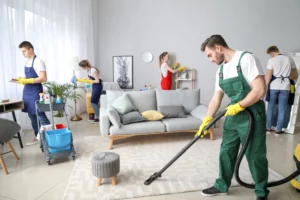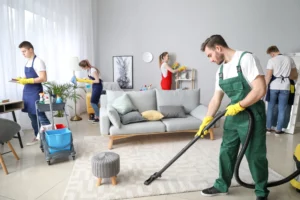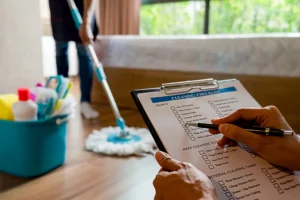Pest control is an integral aspect of property maintenance, ensuring a hygienic environment and safeguarding against potential health risks and property damage. While the need for pest control is undeniable, determining the optimal frequency of pest management can be perplexing. Various factors contribute to the frequency recommendation, including the property type, environmental factors, and the specific pest infestation. Understanding these aspects is crucial for devising an effective pest control strategy.
Factors Influencing Pest Control Frequency
The frequency of pest control is significantly influenced by diverse factors, primarily the climate and environmental conditions of the property. Regions prone to extreme temperatures or high humidity levels often experience a surge in pest activities. Additionally, the type of property, whether residential or commercial, plays a vital role in determining the frequency of pest control measures required.
When considering the factors affecting pest control frequency, it’s essential to delve into the reproductive cycles of common pests. Insects and rodents, notorious for their rapid reproductive rates, can swiftly turn a minor infestation into a full-blown crisis if left unattended. Pests like bedbugs and termites are particularly resilient, necessitating a stringent and consistent pest control schedule.
Importance of Regular Pest Control
Regular pest control isn’t merely about eradicating nuisance pests; it is a proactive approach to mitigate potential health hazards and preserve the structural integrity of your property. Prolonged exposure to certain pests can lead to various health complications, including allergies, respiratory issues, and infectious diseases. Moreover, pests such as termites and rodents can cause extensive structural damage, jeopardizing the stability of buildings and homes.
Residential Pest Control Frequency Recommendations
For residential properties, adhering to a regular pest control schedule is paramount. Depending on the pest prevalence in the area, it is generally recommended to conduct pest control sessions bi-monthly or quarterly. However, specific regions experiencing severe infestations might require monthly treatments to ensure effective pest management.
Commercial Pest Control Frequency Recommendations
Business establishments, especially those operating in the food industry, hospitality, and healthcare sectors, must prioritize stringent pest control measures. The frequency of pest control in commercial settings varies based on the industry standards and the specific pest risks associated with the business. While some businesses may require monthly inspections and treatments, others may opt for bi-monthly or quarterly sessions.
Signs That Indicate the Need for Immediate Pest Control
Certain indicators signal the urgency for immediate pest control measures. Visible pest infestations, including sightings of rodents or insects during the daytime, indicate a significant pest problem that necessitates prompt attention. Furthermore, property damages such as gnawed furniture, chewed wires, or compromised structural elements are clear signs of an underlying pest infestation demanding immediate intervention.
DIY Pest Control vs. Professional Services
While DIY pest control methods may seem cost-effective initially, they often fall short in ensuring long-term pest management. Professional pest control services not only offer comprehensive solutions but also provide preventive measures to thwart future infestations. Collaborating with experienced pest control professionals guarantees a thorough inspection, customized treatment plans, and the use of safe and effective pest management products.
Sustainable Pest Control Practices
In the wake of environmental concerns, adopting sustainable pest control practices is gaining prominence. Eco-friendly pest control options prioritize the use of natural and non-toxic substances to minimize environmental impact. Integrated Pest Management (IPM) techniques, incorporating preventive measures, biological controls, and targeted pesticide applications, are increasingly embraced for their sustainable approach to pest management.
In essence, the frequency of pest control services depends on a multitude of factors, including property type, pest prevalence, and environmental conditions. Regular pest control is not just a reactive measure but a proactive strategy to ensure a healthy and pest-free living or working environment. By understanding the significance of timely pest control and adopting sustainable practices, individuals and businesses can safeguard their properties from the detrimental impacts of pest infestations. Remember, prioritizing routine pest control is a step toward preserving the well-being of your property and its occupants. For reliable and professional pest control services, contact Buddy Cleaning Dubai for comprehensive and tailored solutions to your pest management needs.




